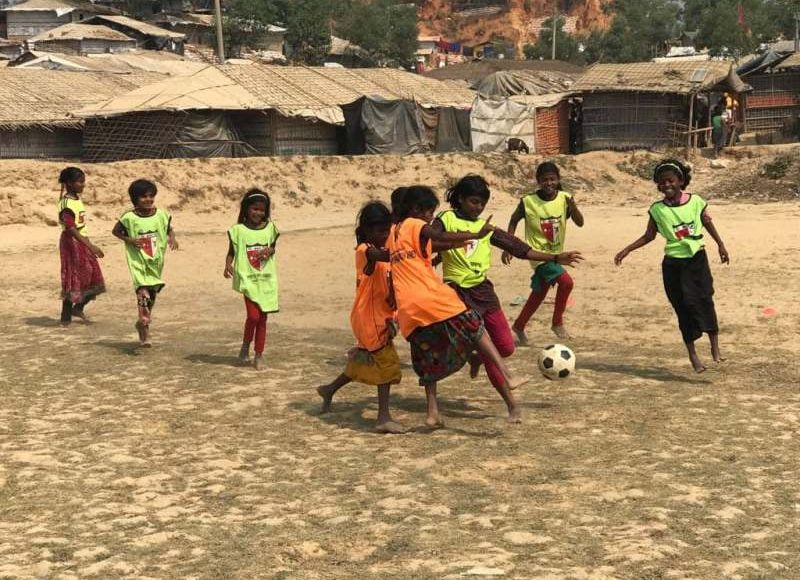
In communities rife with intergroup tension, violence, and disharmony, the peacebuilding process has additional hurdles of ending the negativity even before the dialogue and building step can begin. Ideas of hatred can pass down from parents who know the history and context to their children, who are brought up learning about their side of the issue. These children do not know the past nuances and just learn to ignore and/or hate the other groups.
Conducting diversity-based reconciliation programs through children can bring the communities together as the children are more susceptible to collaboration. The best method to do this is through sports and there a multitude of sports-based NGOs focused on most every global conflict to do just this. Each sport NGO revolves around the idea that intermingling teams, promoting communication, and letting interspersed teams learn about winning, losing, and teamwork, reduces tensions in the community.
The parents of these children will meet at the game and since the teams are not segregated, rival parents will be cheering for their children, not for the losing of the other team. This model includes the children to have fun and play games while providing the parents to learn from their children’s willingness to collaborate across and throughout their community.
Sports are a powerful component of development and peacebuilding. Sport teaches cooperation, sharing, fair play, discipline, leadership, confidence, tolerance, and respect. Each of these attributes can help ameliorate societies undergoing tensions, and the select few NGOs below are actively promoting sports efforts in conflict zones.
- Peace Players (https://www.peaceplayers.org/)
- Peace and Sport (http://www.peace-sport.org/)
- Generations for Peace (https://www.generationsforpeace.org/)
- Sportanddev (https://www.sportanddev.org/)
- F4P (http://www.football4peace.eu/)
- Soccer for Peace (http://soccerforpeace.com/)
- UN International Day for Sport for Development and Peace, April 6 (http://www.un.org/en/events/sportday)
Engaging children through sport is an effective way to begin reconciliation and dialogue throughout the community. Sports, conducted in this way, become an immensely powerful change agent, not focused on winning or losing, but on teamwork and respect.


